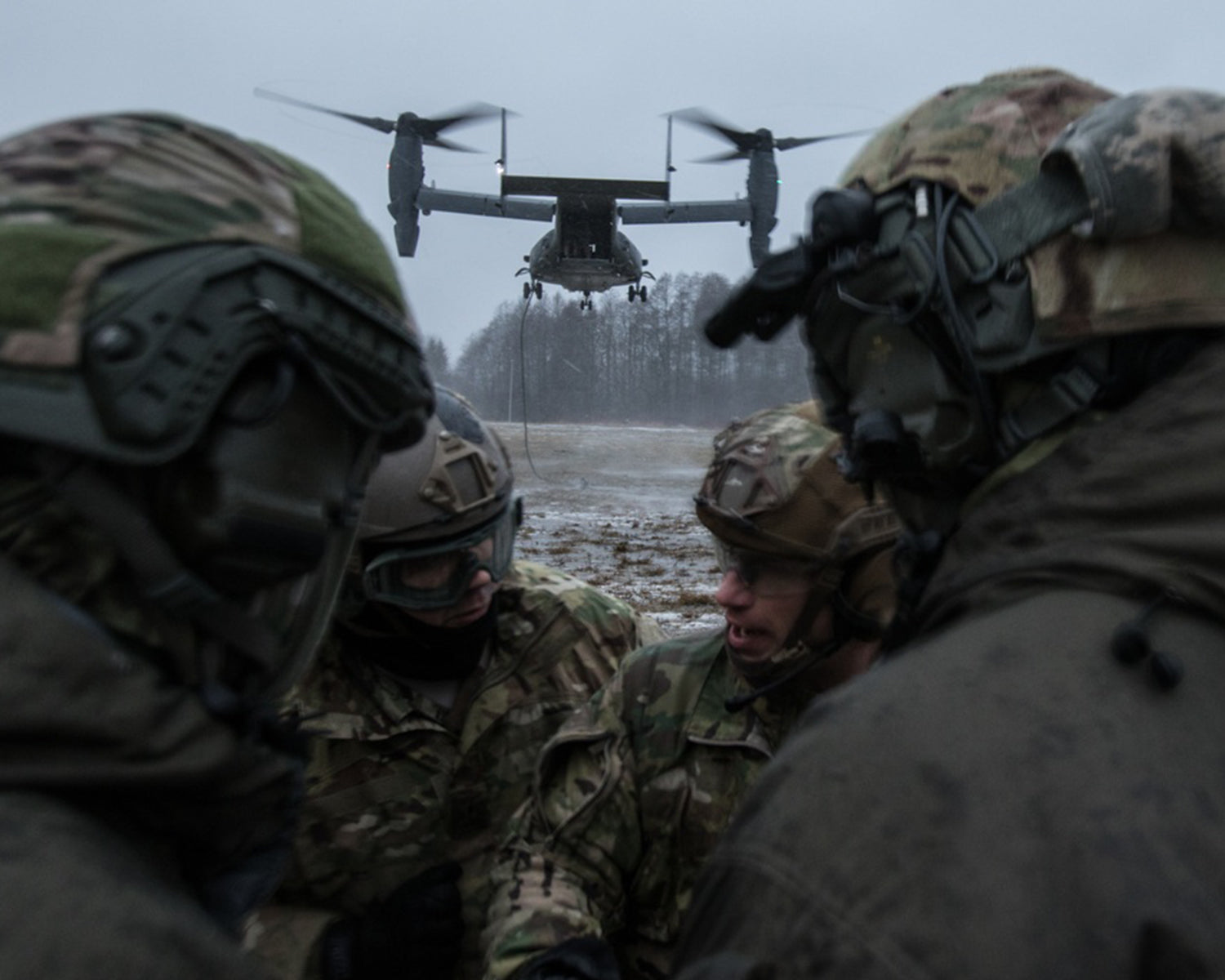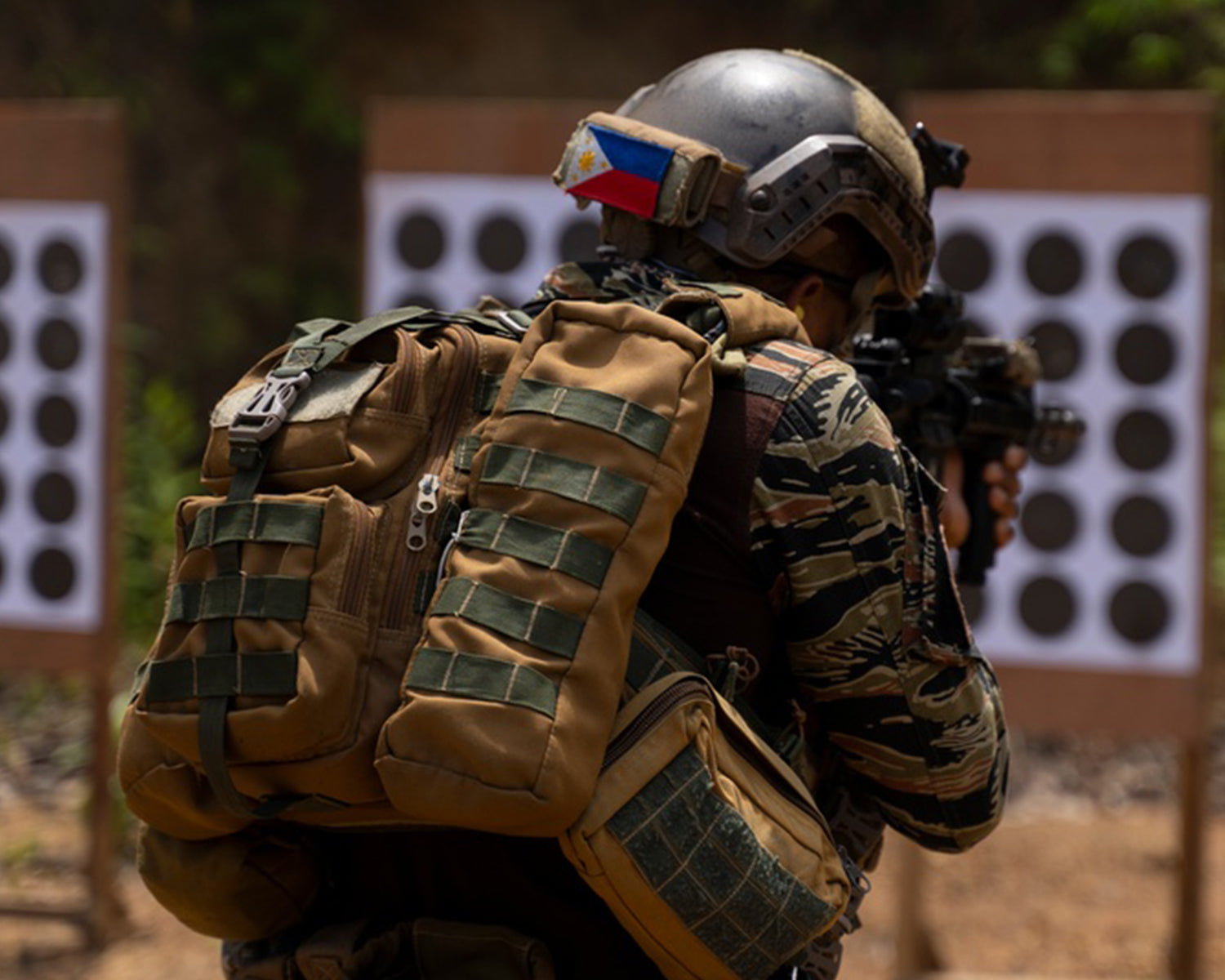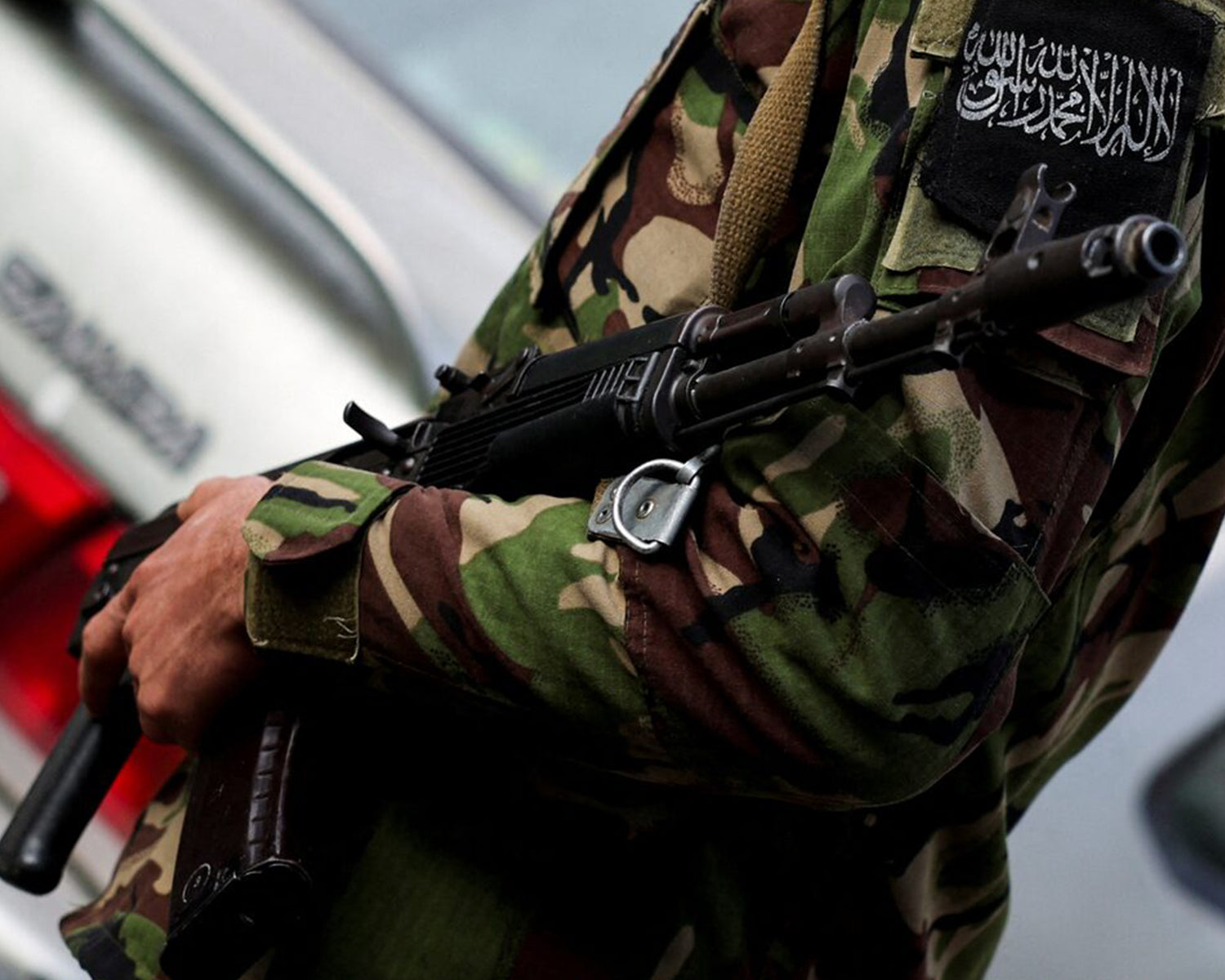
Too much at stake for US military to leave Europe, Estonian minister says
PHOTO CAPTION: Illustrative photo — Estonian and U.S. Special Operation Forces (SOF) consolidate after fast rope training from a U.S. Air Force CV-22 Osprey, near Amari, Estonia, Dec. 12, 2017. (U.S. Army photo by Staff Sgt. Matt Britton via DVIDS)
By Andrius Sytas
TALLINN (Reuters) - The U.S. administration may want to focus less on protecting Europe, but a military presence is too valuable for securing NATO's flank and projecting influence for it to pull out entirely, Estonia's defence minister has said.
Hanno Pevkur told Reuters on Monday the U.S. might reposition some troops to focus more on the Indo-Pacific, but said there had been no discussion within the Western NATO alliance about any reduction of U.S. forces in Europe.
"I do not believe that the U.S. will withdraw its troops from Europe," Pevkur said.
U.S. Defense Secretary Pete Hegseth told NATO allies in February that "stark strategic realities prevent the United States of America from being primarily focused on the security of Europe".
Such comments have fuelled European fears about the U.S. commitment to NATO, along with Trump's threats not to protect members that spend too little on defence, and his reluctance to keep supporting Ukraine's fight against Russian invasion.
But Pevkur said Hegseth had also stressed that NATO was important to the United States. "(For that) you need to be present," he said.
In addition, major U.S. bases such as those in Italy and Germany allowed Washington to project power around the world.
The U.S. currently has about 80,000 troops in Europe.
"The base in Naples, the base in Ramstein - those are very critical for U.S. global interests. And securing the eastern flank is very important for the United States," Pevkur said.
The U.S. military has been present in Estonia, Latvia and Lithuania almost continuously since April 2014, shortly after Russia seized Ukraine’s Crimean peninsula.
As neighbours of Russia that were annexed into the Soviet Union in the 1940s, the Baltic states were particularly alarmed by Moscow's full-scale invasion of Ukraine in 2022.
Estonia has committed to spending about 5.4% of its gross domestic product (GDP) on defence within the next four years, which would put it near the top of European NATO members, who average only 2% of GDP.
Pevkur said an average of 4% was needed for the continent to restore its military capabilities, but would be difficult to achieve at NATO's summit in June, as many countries are heavily indebted, and those further from Russia are less keen to spend.
Trump has called for NATO countries to spend 5% of GDP on defence, while NATO Secretary General Mark Rutte has said new NATO military capability targets imply defence spending "north of" 3% of GDP.
(Reporting by Andrius Sytas in Tallinn; Editing by Kevin Liffey)










